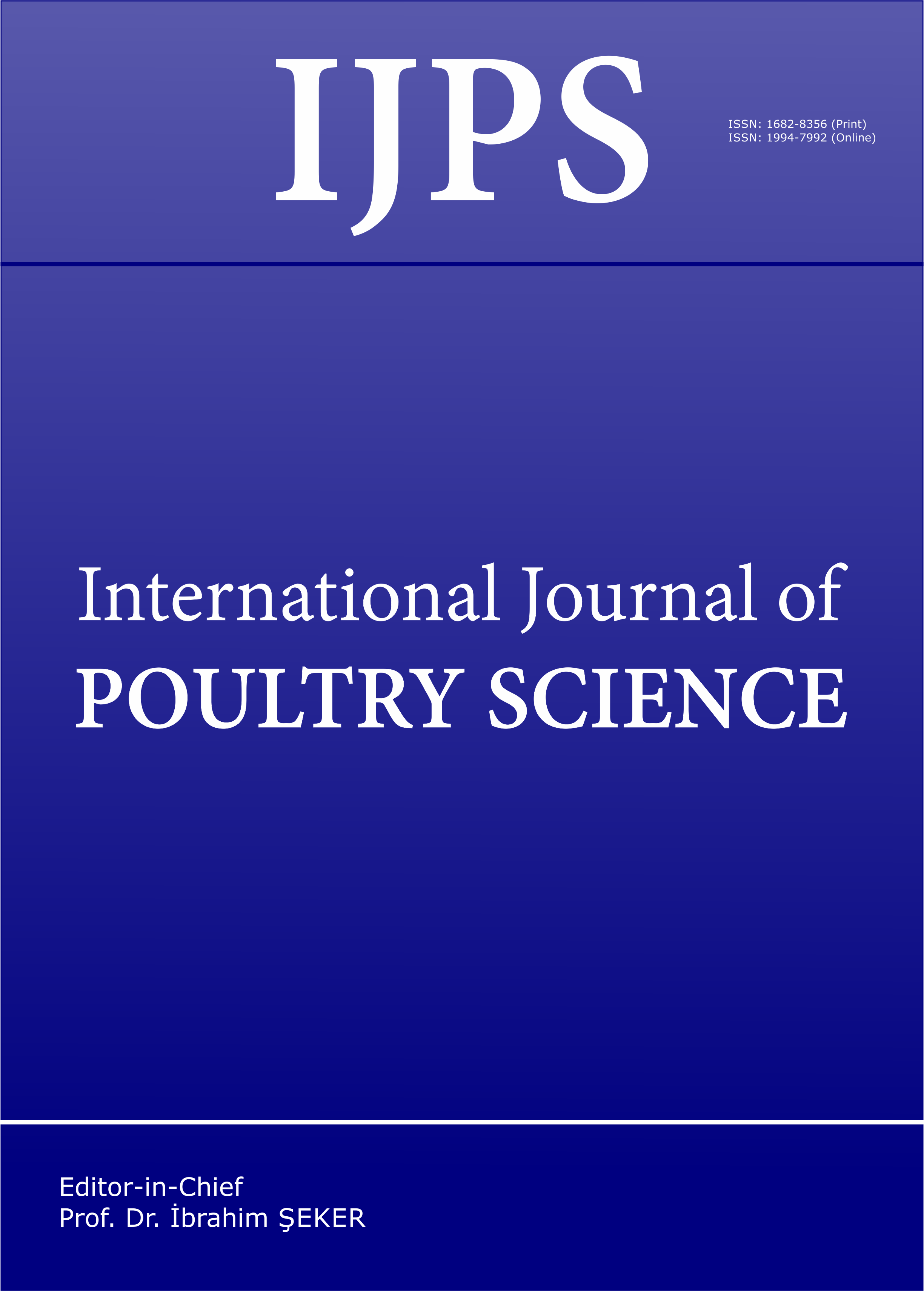Thermostability Profile of Newcastle Disease Viruses Isolated from Wild Birds in Central Nigeria and the Selection of a Thermostable Clone from the Sub-Population
DOI:
https://doi.org/10.3923/ijps.2010.791.794Keywords:
Clone, heat stability, NigeriaAbstract
The study was carried out to assess the Haemagglutinin thermostability of Newcastle disease virus isolates obtained from wild birds in three climatically distinct states in central Nigeria. Identification of heat stable ND virus isolates from the locality will provide environmentally friendly thermostable vaccine candidates for rural poultry. The 12 field virus isolates and the 5 vaccine virus strains showed variable degrees of heat stability. Three field isolates each was inactivated in 5 min, three in 10 min and one in 15 min. One isolate was inactivated in 20 min while two and three strains got inactivated in 25 and 30 min respectively. The most thermostable of the field isolates was inactivated in 40 min. A more thermostable clone was subsequently derived from the latter strain as a local vaccine candidate. For the vaccine strains, NDV (I/O) and NDV (K) were inactivated in 20 min while NDV (L) was inactivated in 25 min. The velogenic strain (Herts) was inactivated in 40 min. The two established thermostable strains, NDV4 and NDVI2 were inactivated in 90 min each. The thermostable profile of the field virus strains did not vary with the climatic background of the isolates.
References
Hanson, R.P. and J. Spalatin, 1978. Thermostability of the hemagglutinin of Newcastle disease virus as a strain marker in epizootiologic studies. Avian Dis., 22: 659-665.
Ibu, J.O.A., E.P. Okoye, K.F. Adulugba, S.V.O. Chah and E. Shoyinka et al., 2009. Prevalence of Newcastle Disease uses in wild and captive birds in central Nigeria. Int. J. Poult. Sci., 8: 574-578.
Kinde, H., W. Utterback, K. Takeshita and M. McFariand, 2004. Survival of exotic newcastle disease virus in commercial poultry environment following removal of infected chickens. Avian Dis., 48: 669-674.
King, D.J., 2001. Selection of thermostable newcastle disease virus projeny from reference and vaccine strains. Avian Dis., 4: 512-516.
Lomniczi, B., 1975. Properties of non-neurovirulen plague-forming mutants of newcastle disease virus. Avian Dis., 20: 126-134.
OIE, 2004. Office of International Epizootics, Manual of Diagnostic Tests and Vaccines for Terrestrial Animals. In: Newcastle Disease, Truszczynski, M. (Ed.). OIE Standard Commission Publication, USA.
Okeke, E.N. and A.G. Lamorde, 1988. Newcastle Disease and its Control in Nigeria. In: Viral Diseases of Animals in Africa, Olufemi Williams, A. and W.N. Masiga (Eds.). CTA/OAU/Publications, Lagos, Nigeria, pp: 283-299.
Downloads
Published
Issue
Section
License
Copyright (c) 2010 Asian Network for Scientific Information

This work is licensed under a Creative Commons Attribution 4.0 International License.
This is an open access article distributed under the terms of the Creative Commons Attribution License, which permits unrestricted use, distribution and reproduction in any medium, provided the original author and source are credited.

